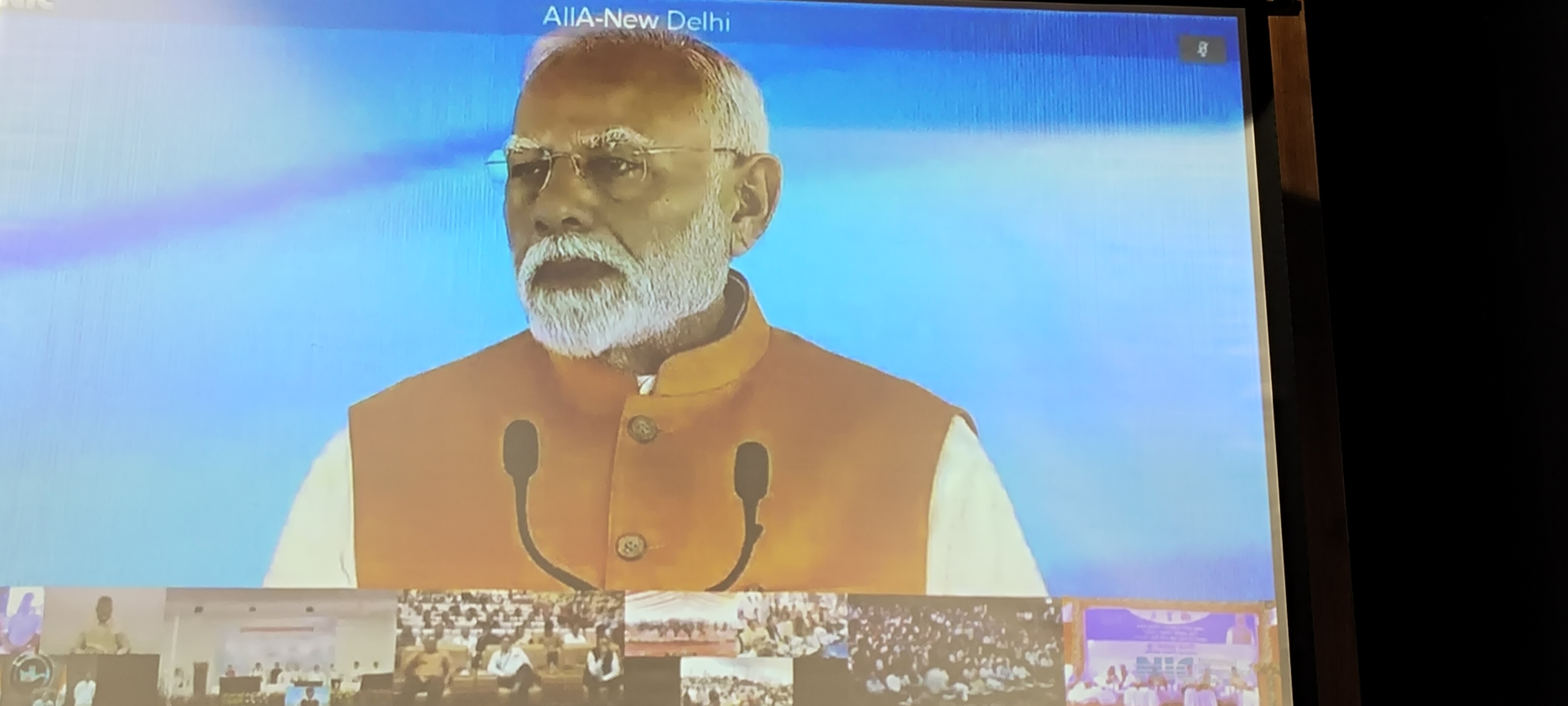29 October 2024

The Honourable Prime Minister Shri Narendra Modi today launched a Centre of Excellence in Ayurveda for Diabetes and Metabolic Disorders at the Indian Institute of Science (IISc). This launch coincides with the 9th National Ayurveda Day, celebrated on 29 October 2024, which carries the theme “Ayurveda Innovations for Global Health.” This year’s theme emphasises the importance of integrating Ayurveda with modern science to address critical health issues like diabetes.
One of the key highlights of National Ayurveda Day 2024 is the launch of six new Centres of Excellence in Ayurveda across India. These centres, established under the “Ayurswasthya Yojna” programme, will be led by institutions like IISc, IIT Delhi, Jawaharlal Nehru University Delhi, CSIR-Central Drug Research Institute, Lucknow, and so on. Backed by a grant of Rs 52.47 crore, these centres will spearhead cutting-edge research, education, and healthcare innovation in the field of Ayurveda, by providing scientific underpinning for traditional knowledge.
CoE for diabetes and metabolic disorders at IISc
Diabetes has emerged as a global health crisis. While modern medicine offers effective treatments, there is growing interest in exploring alternative approaches like Ayurveda. This ancient system prioritises prevention, lifestyle adjustments, and natural remedies for holistic diabetes management. To achieve these goals, the Centre of Excellence will collaborate with leading institutions in India with expertise in Ayurveda, diabetes, and medical research. These partnerships will facilitate interdisciplinary research, knowledge sharing, and the translation of research findings into real-world clinical practice.
As a part of this CoE, a randomised active comparator controlled clinical trial will be conducted, with a longitudinal study over two years, to assess the efficacy of two new Ayurvedic formulations (Mustadi Ghana Vati and Varadi Ghana Vati) in prediabetes and Type II diabetes. The enrolment of subjects has just begun, after completing due processes of ethics committee approval, registration of study on the Clinical Trial Registry of India (CTRI), and constitution of the Data Safety Monitoring Board (DSMB). In conjunction with the clinical trials, systematic in vitro (cell lines and animal models) and in vivo (blood samples of participants) studies will be pursued to understand the cellular and molecular mechanisms of protein glycation and oxidation (through mass spectroscopy), the role of different adipose tissues (brown, white, beige), and response to therapy. In addition, finger printing of Ayurvedic formulations and identification of potential active molecule/species will also be assessed through exhaustive chemical analysis.
The CoE is led by PI Navakanta Bhat, Professor at the Centre for Nano Science and Engineering (CeNSE), IISc, and co-PI Sona Rajakumari, Assistant Professor, Department of Developmental Biology and Genetics (DBG). “The CoE aligns very well with the future vision of establishing a very strong programme of integrative medicine at the IISc post graduate medical school. This study builds on our prior work on albumin glycation and oxidation,” says Bhat.
“This would perhaps be the first such comprehensive study on the interplay between Ayurvedic therapy and reprograming of adipose tissue function,” adds Rajakumari.
Other co-PIs from collaborating institutes include Sulochana Bhat, Assistant Director In-charge, Central Ayurveda Research Institute (CARI); S Srikanta, renowned endocrinologist and Director, Samatvam: Science and Research for Human Welfare Trust; and KS Nagabhushana, Prayoga Institute of Education Research. These institutions, all located in Bengaluru, bring diverse expertise and resources to the collaboration, enhancing the CoE’s capacity to conduct comprehensive research.
Sulochana says: “The research planned under the CoE holds immense potential to transform the landscape of Ayurvedic diabetes care. By generating scientific evidence for the efficacy of Ayurvedic approaches, the Centre will pave the way for its integration into mainstream healthcare. This synergy of ancient wisdom and modern science will help improve the lives of millions with diabetes and shape the future of integrative medicine.”
Srikanta says: “I have been a part of many international clinical trials on diabetes. The study planned under this CoE is in strict compliance with the highest rigour of international standards, and it is perhaps the first such comprehensive longitudinal study on Ayurvedic therapies for diabetes to be compared against standard allopathic therapy. There is a need to go beyond glucose-centric approach for Type II diabetes management, given the important role of oxidative stress in the prognosis. The holistic approach of adapting appropriate Ayurvedic therapies may open up new pathways for diabetes management.”
“My expertise in natural products chemistry, organic synthesis and organometallic chemistry will bring to bear on isolation and identification of the active chemical molecules/species, which could perhaps enhance the mechanistic understanding of Ayurvedic therapies, possibly paving the way for developing improved interventions,” adds Nagabhushana.

CONTACT:
Navakanta Bhat
Dean, Division of Interdisciplinary Sciences
Professor, Centre for Nano Science and Engineering (CeNSE)
Indian Institute of Science (IISc), Bengaluru – 560012
Email: navakant@iisc.ac.in
Phone: +91-80-2293-3312
Website: http://www.cense.iisc.ac.in/navakanta-bhat
https://www.iisc.ac.in/academics/divisions/division-of-interdisciplinary-research/
Sulochana Bhat
Assistant Director In-charge
Central Ayurveda Research Institute,
#12, Uttarahalli Manavarthe Kaval
Kanakapura Main Road, Talaghattapura Post, Bengaluru – 560109
E-mail: nadri-bengaluru@gov.in
Phone: 29535034 (Office)/29635035(Hospital)
Website: https://www.cari.gov.in/



